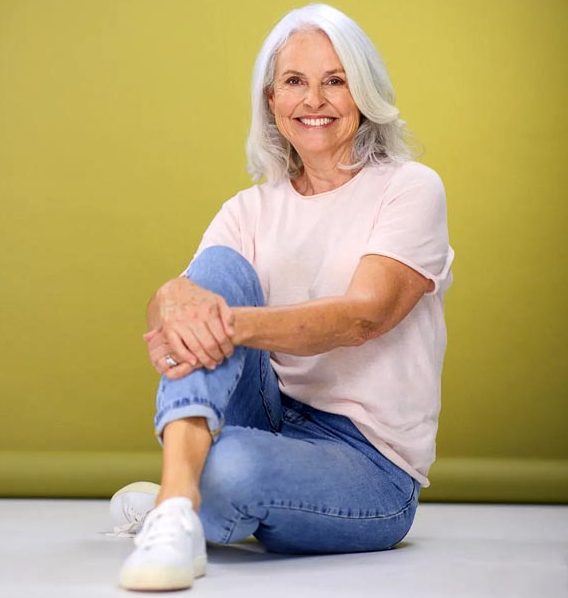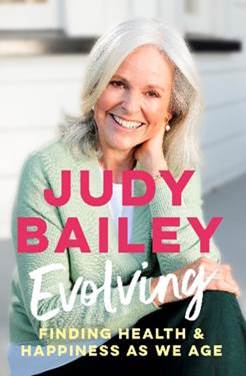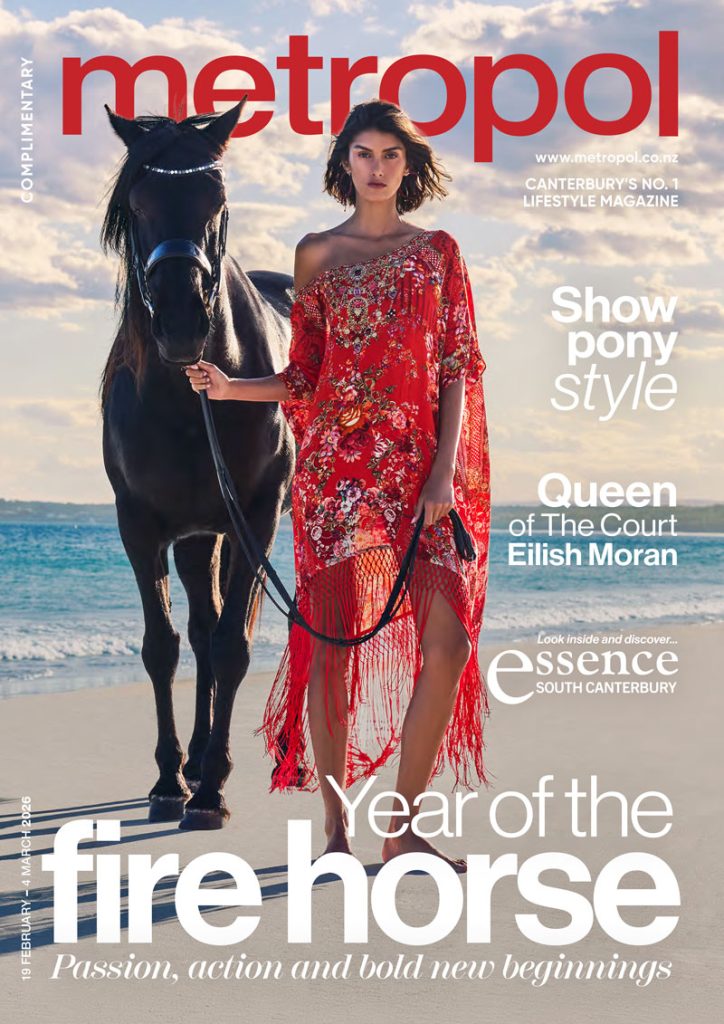
Happily evolving with Judy Bailey
From mother of the nation to doting grandmother and author has been a rewarding transition for former television newsreader/journalist Judy Bailey. Along the way she has returned to her first love of writing, as she explains to Metropol Editor, Lynda Papesch.
Almost 20 years have passed since TVNZ broadcaster Judy Bailey signed off her final news bulletin in 2005. At that time, Judy had no idea that the next years would be some of the most fulfilling of her life.
The author of a new book, Evolving, Judy is now making headlines instead of reading them as she shares new science and personal stories that have shaped her own path into older age. She tackles subjects such as taking care of your body and mind, through to organising finances, navigating health scares, grieving loved ones, and enjoying the finer things.
“Writing is why I went into journalism in the first place,” she says, adding that now those skills are being used to help society recognise the value of older people, of lives lived and experience gained. “We live in an increasingly ageist society where older people are often portrayed as frail and doddery, but the reality is many of them are still working, achieving, supporting families, and giving back to the community. I wanted to help people plan for their older years, and to live them as fully as possible.”
A handbook on ageing, Evolving is for women and men in their middle-age, because it’s at that stage, Judy says, we need to be making lifestyle choices that will give us the best possible chance of entering older age in good shape, both mentally and physically. Having said that, it’s never too late to make positive changes, she believes.
As a writer and former broadcaster, Judy fronted primetime news for 26 years, becoming one of the most recognised faces in New Zealand, and inheriting the accolade “mother of the nation”.
After leaving TVNZ, she co-presented Māori Television’s ANZAC Day programme for many years.
A founding member and patron of Brainwave Trust Aotearoa, Judy is patron of several other organisations including the National Collective of Women’s Refuges, Hospice North Shore, Skylight Trust, the Grief Centre, and the Muscular Dystrophy Association.
Married to producer and director Chris Bailey, with whom she has three children, and seven grandchildren (with an eighth on the way), Judy says it is great to be going back to her writing roots.
“I enjoyed it [writing Evolving] immensely; the research, following the journey of my life, and hopefully now helping others ease into retirement.”
One of Judy’s key messages is not waiting until retirement to start planning for it. “How you live life at a younger stage will impact on your later life,” she explains. “Life is much more complicated now, particular with the online scene; it’s so difficult now for children, compared with when I grew up in the 50s and 60s. Life was very simple then. There weren’t as many choices, or pitfalls.”
Children need to be “well scaffolded” to navigate life these days, she believes.
“Parenting is so important. The relationships that we have at the beginning of our lives (keeping in mind that relationships are the primary architects of the brain) allow us to become capable contributing adults.”
Her advice for younger generations is to start saving for their retirement from the first moment they start to earn. “Don’t expect superannuation to cover everything, and don’t expect to own your own home.
“Even rental property is such a volatile market as many older people are now discovering, so you need to think very carefully about your future from the beginning.” Warm, nurturing relationships are one of the key pillars of healthy ageing, says Judy. “While we may lose friends along the way, it is important to keep socialising, making new friends, and surrounding yourself with them.”
Ease into it
“When you age you do begin to feel just that little bit vulnerable. That vulnerability comes, I think, from what we’re told about ageing. So much of it is negative: we’ll be frail, dependent, impoverished, a drain on the health system, on society, a burden. This is ageism, and it’s just as toxic as every –ism out there. It’s the idea that people become somehow inferior just because of the number of years they’ve lived. I wanted to dispel this myth. I want society to recognise the value of older people, of lives lived and experience gained,” says Judy.
“I see Evolving as a handbook for ageing, a guide to encourage people to try and ‘own’ it, to be more proactive in the process and not just to let it happen.” Ageing for Judy personally has been challenging at times, yet also joyful. “I definitely don’t feel old. A little more grown-up than I once was, perhaps, but not necessarily old. 
“Challenging because it is a time of huge change and I’m not good with change. But it has also given me more time to focus on the things that are important, such as relationships, friends and family, and to giving back. “Now that I’m into my 70s, I find my advancing age inescapable. Gloomy? No. That is precisely what I don’t want to be about the inevitability of age. Growing older is a blessing, one so many don’t get to experience. After all, I hope to have 20 or even 30 good summers left in me, and I don’t want to waste them.”
Judy’s top 5 messages
Develop good positive relationships, and spend the time to nurture them. Relationships are the primary architect for the developing brain when we’re young and vulnerable, but they are profoundly protective as we age too.
Studies show that the people who are happiest, who stayed healthiest as they grew old, and who lived the longest were the people who had the warmest connections with other people. Those who were happiest at 50, the study found, were healthiest at 80. And those who were happiest in retirement were the people who nurtured relationships with family, friends and their community. Loneliness is a problem for so many people, so do what you can to include others.
Look after your heart. According to neuroscientists like the University of Auckland’s Sir Richard Faull (ONZM), ‘What’s good for the heart is good for the brain.’ As well as increasing the risk of heart attacks and strokes, things like high cholesterol, high blood pressure, diabetes and obesity also increase the risk of dementia.
Dementia: The experts tell me genes only account for around a seven percent risk of developing dementia. They say if you live a healthy, active lifestyle, that will lessen the risk, even if you have a genetic risk. Activity that is cognitively challenging for half an hour at least five days a week is profoundly protective. Take up ballroom-dancing, kapa haka, anything that stimulates the brain to think creatively and across both hemispheres.
Think carefully about retirement. If you’ve had a busy job or one that defines you, this time can be hard because you can lose the sense of who you are. Whenever you do it, and on whatever terms, retirement is a transition and something we need to prepare for, not just fall into. It is not about life narrowing; it’s about life expanding. After all, most of us will have at least another 20 good years ahead of us. Yes, it’s about evolving!




